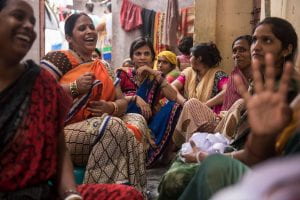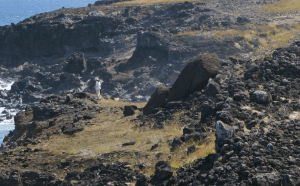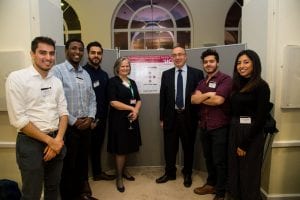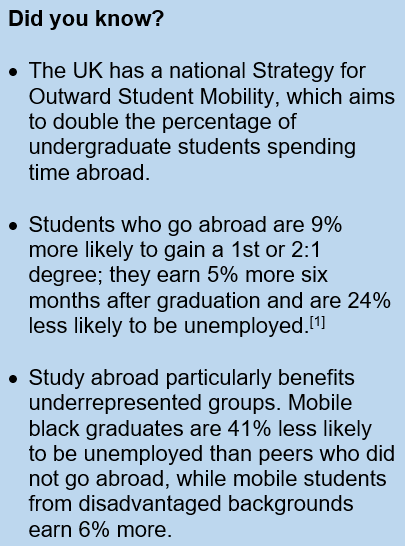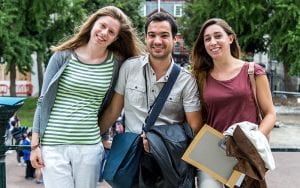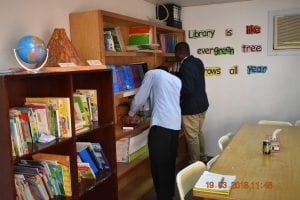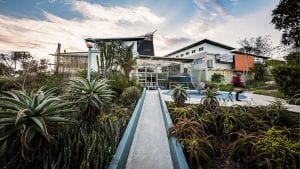UCL alumni interview: Himani Gupta, artist
By ucypsga, on 1 August 2019
 Himani Gupta studied international real estate and urban planning at The Bartlett from 2011-2012. Having worked as a spatial designer and a consultant for Ernst & Young in Delhi, Himani is now working full time as an artist, specialising in painting.
Himani Gupta studied international real estate and urban planning at The Bartlett from 2011-2012. Having worked as a spatial designer and a consultant for Ernst & Young in Delhi, Himani is now working full time as an artist, specialising in painting.
We spoke to her to find out more about her experience at UCL and how she stays in touch with the UCL community.
How did you come to study at UCL?
Firstly, because I love the campus and I’d been following it for a while. Secondly, I found the work that’s been done at the Bartlett very relevant to the direction I wanted to go in professionally. Before doing my masters I used to be a spatial designer, but I wanted to get onto the other side which was understanding the business of cities and how infrastructure and real estate are developed around them.
How did you find studying at UCL?
It was a really enriching experience because I got to learn about the politics of space in Europe and the real estate markets in China and the Middle East. The freedom we had in terms of things like choosing our dissertation was great. I could also make it more India-centric, which helped me immensely after UCL in terms of getting a job in Management Consulting in the Urban field in India, as I’d written on similar topics for my masters.
Compared to my undergrad degree in Business Studies in India, UCL was more analysis-based. It took some time but once I got used to the structure of the course it opened up a new way of looking at things, which helped me in my job in the real world and still helps me now.
What was it like living in London?
I’ve always loved London so the city was very familiar to me. I lived in Bayswater in West London so I’d cycle or walk down to the campus. We organised Thursday drinks at the UCL bar, which became a hub for us each week. I found the balance between a lot of study and a lot of socialising quite enriching.
It’s all so centrally located and I liked that we had classes in different locations across the campus; I explored all sorts of hidden buildings. Now I’m an artist and my work is about psycho-geography and understanding layers of space, and the fact that I walked quite a bit while studying in London has shaped my approach to my work.
What would your advice be for a student in India looking to study at UCL?
Figure out funding very early on and give yourself a strict budget. Once you have that figured out life at UCL and in London is very easy. At UCL, you have an account to access a student/teaching portal where all the modules and submissions are in one place. It’s really cool because one can study anywhere. UCL has a lot of libraries and quiet corners to study, which was one of my favourite parts. I’d say try and explore as many nooks and corners as possible around the campus.
What aspects of the culture did you enjoy?
The fact that you get to hear a different language every square foot or two. Because I’m a walker I take in and absorb London as I walk through it, and as you do you get an insight into how many cultures and backgrounds exist together in this city.
The art scene and the number of galleries in London is phenomenal and the shops that offer material really works for me. Also, the food! Which is a direct function of the number of cultures that exist here.
Even after graduation, I make it a point to visit UCL on my trips to London to catch up with old and new connections.
How have you kept in touch with the UCL community?
I moved back to India in 2013 but I recently wrote to another good friend of mine from my course who’s very active in New York with the UCL alumni group there. He put me in touch with UCL’s alumni team, and through them I got involved with volunteering in Delhi. I organised a reunion event in Delhi a few months ago – about 26 of us came together for a casual mixer event at the art-themed homestay I run.
I was curious to bring together people from different professions and initiatives not just for myself but for everyone present. It’s also a great way to form new social groups. I now look forward to more events and more people volunteering in Delhi. I’m happy to open up my studio (which can accommodate up to 35 people) to those interested in having an Arts and Culture themed reunion mixer.
Tell us about your work.
I’ve got my hands in a lot of pies! I used to work in spatial design before doing my masters then I came back to India and I started working as a consultant with Ernst and Young. So I used to be in management consulting in the infrastructure and smart cities team.
I’ve also been a painter for the last fifteen years and after deciding to leave consulting I wanted to focus on it full time. My visual arts practice is drawn from my very diverse experiences in education, professions and travels. Urban and spatial exploration has been a research interest of mine for a long time and what I try and study through my art is the idea of psychogeography and understanding the materiality of space. My medium in art is painting primarily and I create large pieces of work. I work with pigments and paint. Lately, I have been creating a lot of smaller works based on mapping.
What are you working on with the Slade?
Through my work as a UCL volunteer, I was introduced to Deborah Padfield, an artist and professor at the Slade who is exploring how chronic pain is communicated through the arts in a project called Visualising Pain.
She wanted to work with a local artist and although pain is not my direct subject, the fact I could use paint and pigment in order to help chronic pain sufferers communicate their pain better motivated me to get involved. I ended up co-facilitating a workshop with Deborah (and others) in Delhi in May 2019. It went really well and made an impact on our participants who battle chronic pain everyday.
How has UCL helped you to achieve your ambitions?
It’s interesting because before coming to UCL I wasn’t particularly motivated to do ‘well’ in the conventional sense – whether that’s an educational qualification or a job – my pace was a lot slower. Which is not necessarily a bad thing but in my case I wasn’t achieving too much or doing too much with my time.
I think UCL and my experience of living in London really inspired me and opened up a channel which I never knew existed in me, which is that of wanting to achieve and working hard. I got into the habit of maintaining a diary, organising myself better, understanding before speaking or describing. I started being meticulous about my work and had I not gone through this change I would still be very bohemian and less results orientated.
UCL would love to hear from more alumni in India and around the world.
Get in touch and find out more about volunteering at ucl.ac.uk/alumni
 Close
Close



